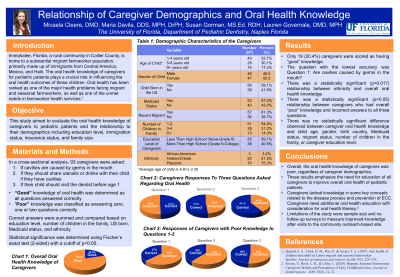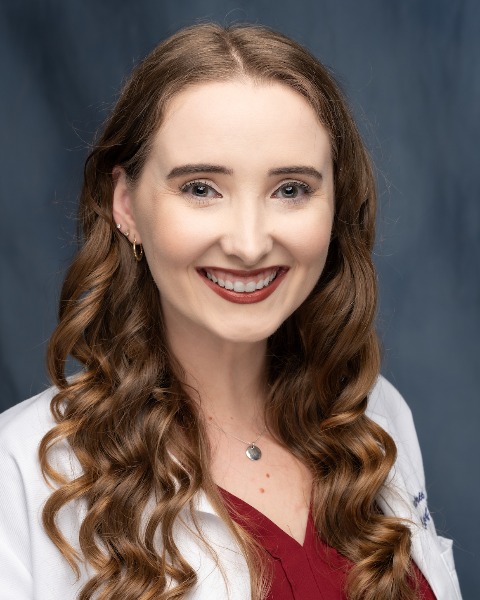Preventive
15 - Relationship of Caregiver Demographics and Oral Health Knowledge


Micaela Cleere, DMD
Pediatric Dental Resident
University of Florida-Naples
The University of Florida
North Port, Florida, United States- MC
Matthew Cooke, DDS, MD, MPH
Program director
University of Florida
Gainesville, Florida, United States
Presenting Author(s)
Program Director(s)
Conclusions: Overall, oral health knowledge of caregivers was poor, regardless of caregiver demographics. This emphasizes the need for education of all caregivers to improve the overall oral health of pediatric patients.
Purpose: The oral health knowledge of caregivers to pediatric patients has a significant impact on the oral health of patients. We examined the knowledge of caregivers at a community dental clinic and the relationship to education level, immigration status, insurance status, and family size.
Methods: In a cross-sectional analysis, 93 caregivers were asked: 1) if cavities are caused by germs in the mouth, 2) if they should share utensils or drinks with their child if they have cavities, and 3) if their child should visit the dentist before age 1. “Good” knowledge of oral health was determined as all questions answered correctly; otherwise, they were classified as having “poor” knowledge. Correct answers were summed and compared based on education level, family size, US born, and Medicaid status.
Results: Out of 93 caregivers, 52 (55.9%) immigrated to the US in the last five years, and only 38 (40.9%) completed at least 1 year of high school. The majority were US born (n=54, 58.1%), had more than 1 child in their family (n=74, 79.6%), were covered by Medicaid (n=53, (57%), and 54 (58.1%) were US born. Only 19 (20.4%) caregivers were scored as having “good” knowledge. There was no statistically significant relationship between education level, country of origin, family size, or Medicaid status by Chi-square test or Pearson correlation.
Identify Supporting Agency and Grant Number:

.jpg)